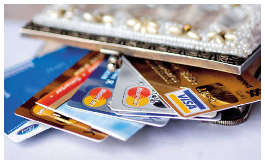Credit card default punishments are punitive in India. According to credit information company, TransUnion Cibil data, credit card dues are rising in the country. Dues made by citizens in India have tripled in last five years. Total outstanding amount on credit cards in the country had reached nearly Rs 2.7 lakh crore in June 2024, as reported by ‘The Economic Times.’ It was Rs 87,686 crore in March 2019. Those who are in habit of making defaults, they are liable for receipt of credit card default punishments. Lets see what actions banks usually take on such customers:
Difference Between Credit Card Dues And Credit Card Defaults:
But before that lets see what is the difference between ‘Credit card Dues’ and ‘Credit Card Defaults.’ If a borrower doesn’t pay his dues for one or two months, then, the outstanding amount which he has not paid will be termed as dues. But, if he doesn’t payback the outstanding amount continuously for next six months, then, his dues will be termed as default by the issuer.
Credit Card Default Punishments In India:
According to information given by Kotak Mahindra Bank, following credit card default punishments are given to offenders by banks:
1. Legal Action
Bank may take legal action against the credit card defaulter. The lender can file a civil suit or even criminal case against the offender. This will lead to huge financial losses and reputation tarnishing of the defaulter.
2. Debt Collection Agencies
In some cases, banks don’t take legal action themselves, they transfer the case to a debt collection agency to get the money back. Debt collection companies are infamous for taking aggressive and harassing steps. If the borrower becomes elusive, the agencies catch hold of his acquaintances.
3. Low Credit Score
Credit score is the score given to a borrower based on his creditworthiness. It is calculated based on his past credit history. Credit card defaults negatively impacts credit score. It will be decreased. It would make it difficult for the offender to get loans or credit cards in the future. Low credit scores also lead to levy of higher interest rates and the borrower will get lower credit limits whenever he applied for a new credit card later on with any other bank.
4. Low Credit Limit
Credit Limit is the limit imposed on how much money can a loanee utilize for payments. Credit card defaulters are seen as high-risk borrowers to other banks. Whenever, he would apply for a new card from any other bank, the new lender will not give him high credit limit on the plastic money. This will impact his spending capacity.



